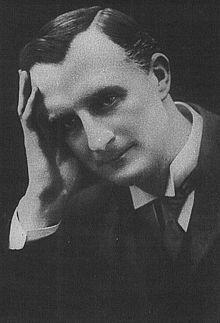
Sir Winston Leonard Spencer Churchill was a British statesman, military officer, and writer who was Prime Minister of the United Kingdom from 1940 to 1945 and again from 1951 to 1955. Apart from 1922 to 1924, he was a member of Parliament (MP) from 1900 to 1964 and represented a total of five constituencies. Ideologically an adherent to economic liberalism and imperialism, he was for most of his career a member of the Conservative Party, which he led from 1940 to 1955. He was a member of the Liberal Party from 1904 to 1924.

Edward Grey, 1st Viscount Grey of Fallodon,, better known as Sir Edward Grey, was a British statesman and Liberal Party politician who was the main force behind British foreign policy in the era of the First World War.
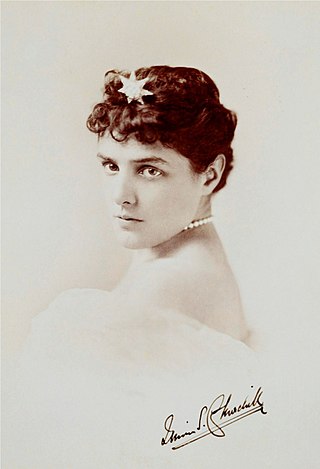
Jeanette "Jennie" Spencer-Churchill, known as Lady Randolph Spencer-Churchill, was an American-born British socialite, the wife of Lord Randolph Churchill, and the mother of British prime minister Winston Churchill.

The Edward Grey Institute of Field Ornithology (EGI), at Oxford University in England, is an academic body that conducts research in ornithology and the general field of evolutionary ecology and conservation biology, with an emphasis on understanding organisms in natural environments. It is named in honour of Edward Grey, 1st Viscount Grey of Fallodon, a notable politician and ornithologist, and is part of the Department of Zoology at Oxford University.
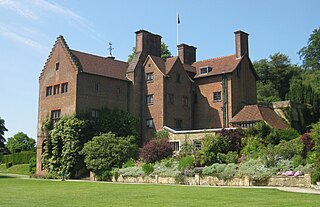
Chartwell is a country house near Westerham, Kent, in South East England. For over forty years it was the home of Sir Winston Churchill. He bought the property in September 1922 and lived there until shortly before his death in January 1965. In the 1930s, when Churchill was out of political office, Chartwell became the centre of his world. At his dining table, he gathered those who could assist his campaign against German re-armament and the British government's response of appeasement; in his study, he composed speeches and wrote books; in his garden, he built walls, constructed lakes and painted. During the Second World War, Chartwell was largely unused, the Churchills returning after he lost the 1945 election. In 1953, when again prime minister, the house became Churchill's refuge when he suffered a debilitating stroke. In October 1964, he left for the last time, dying at his London home, 28 Hyde Park Gate, on 24 January 1965.

Norman Shelley was a British actor, best known for his work in radio, in particular for the BBC's Children's Hour. He also had a recurring role as Colonel Danby in the long-running radio soap opera The Archers.

"We shall fight on the beaches" was a speech delivered by the British Prime Minister Winston Churchill to the House of Commons of the Parliament of the United Kingdom on 4 June 1940. This was the second of three major speeches given around the period of the Battle of France; the others are the "Blood, toil, tears and sweat" speech of 13 May 1940, and the "This was their finest hour" speech of 18 June 1940. Events developed dramatically over the five-week period, and although broadly similar in themes, each speech addressed a different military and diplomatic context.
"This was their finest hour" was a speech delivered by Winston Churchill to the House of Commons of the United Kingdom on 18 June 1940, just over a month after he took over as Prime Minister at the head of an all-party coalition government.
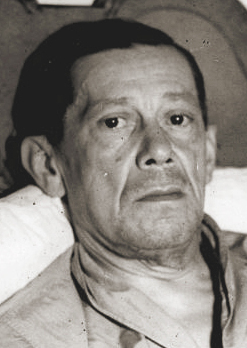
Józef Hieronim Retinger was a Polish politician, scholar, international political activist with access to some of the leading power brokers of the 20th century, a publicist and writer.

Sir Ivone Augustine Kirkpatrick, was a British diplomat who served as the British High Commissioner in Germany after World War II, and as the Permanent Under-Secretary of State for Foreign Affairs, the highest-ranking civil servant in the Foreign Office.
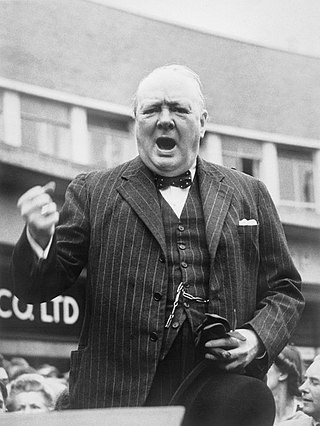
Winston Churchill's Conservative Party lost the July 1945 general election, forcing him to step down as Prime Minister of the United Kingdom. For six years he served as the Leader of the Opposition. During these years he continued to influence world affairs. In 1946 he gave his "Iron Curtain" speech which spoke of the expansionist policies of the Soviet Union and the creation of the Eastern Bloc; Churchill also argued strongly for British independence from the European Coal and Steel Community; he saw this as a Franco-German project and Britain still had an empire. In the General Election of 1951, Labour was defeated.

Named the Greatest Briton of all time in a 2002 poll, and widely regarded as being among the most influential people in British history, Winston Churchill has been regularly portrayed in film, television, radio and other media. The depictions range from minor character to the biographical centerpiece, exceeding 30 films, more than two dozen television shows, several stage productions, and countless books.
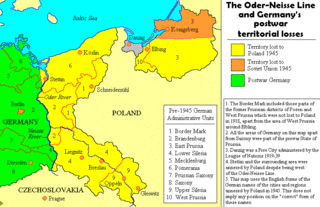
The Oder–Neisse line is an unofficial term for the modern border between Germany and Poland. The line generally follows the Oder and Lusatian Neisse rivers, meeting the Baltic Sea in the north. A small portion of Polish territory does fall west of the line, including the cities of Szczecin and Świnoujście.
"When the Lights Go On Again " is a popular song composed during World War II. It was written by Bennie Benjamin, Sol Marcus and Eddie Seiler. The first recording, by Vaughn Monroe, reached number one on the charts in 1943.
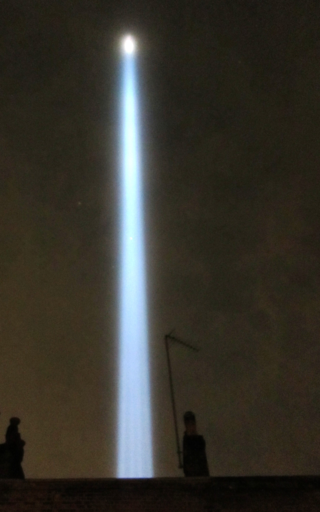
Spectra is the name of a series of art installations by Ryoji Ikeda which use intense white light as a sculptural material. The most recent presentation of spectra was in Hobart, Tasmania, Australia for four days ending 24 June, 2018 to mark the winter solstice, and as an installation piece at the Dark Mofo festival held by MONA. spectra [Amsterdam] was the first presentation of the work in 2008 its current form; an array of xenon lamps pointed skywards lit from dusk till dawn accompanied by a mathematically derived score audible from each of the lamp bases. The work was first commissioned and produced by Forma Arts.

The centenary of the outbreak of World War I occurred in the summer of 2014, with events in several European and Commonwealth countries. It marked the beginning of a wider four year centenary period commemorating the war.
Lights Out was an event on 4 August 2014 in the United Kingdom to commemorate the centenary of the start of World War I. It was inspired by the words of Sir Edward Grey, foreign secretary: "The lamps are going out all over Europe; we shall not see them lit again in our lifetime."
The following events occurred in October 1938:
The United Kingdom declaration of war upon Germany occurred on 4 August 1914. The declaration was a result of German refusal to remove troops from neutral Belgium. In 1839, the United Kingdom of Great Britain and Ireland, France, and Prussia had signed the Treaty of London which guaranteed Belgium's sovereignty.

Winston Churchill was appointed First Lord of the Admiralty on 3 September 1939, the day that the United Kingdom declared war on Nazi Germany. He succeeded Neville Chamberlain as prime minister on 10 May 1940 and held the post until 26 July 1945. Out of office during the 1930s, Churchill had taken the lead in calling for British re-armament to counter the growing threat of militarism in Nazi Germany. As prime minister, he oversaw British involvement in the Allied war effort against the Axis powers. Regarded as the most important of the Allied leaders during the first half of the Second World War, Historians have long held Churchill in high regard as a victorious wartime leader who played an important role in defending Europe's liberal democracy against the spread of fascism. For his wartime leadership and for his efforts in overseeing the war effort, he has been consistently ranked both by scholars and the public as one of the top three greatest British prime ministers, often as the greatest prime minister in British history.
